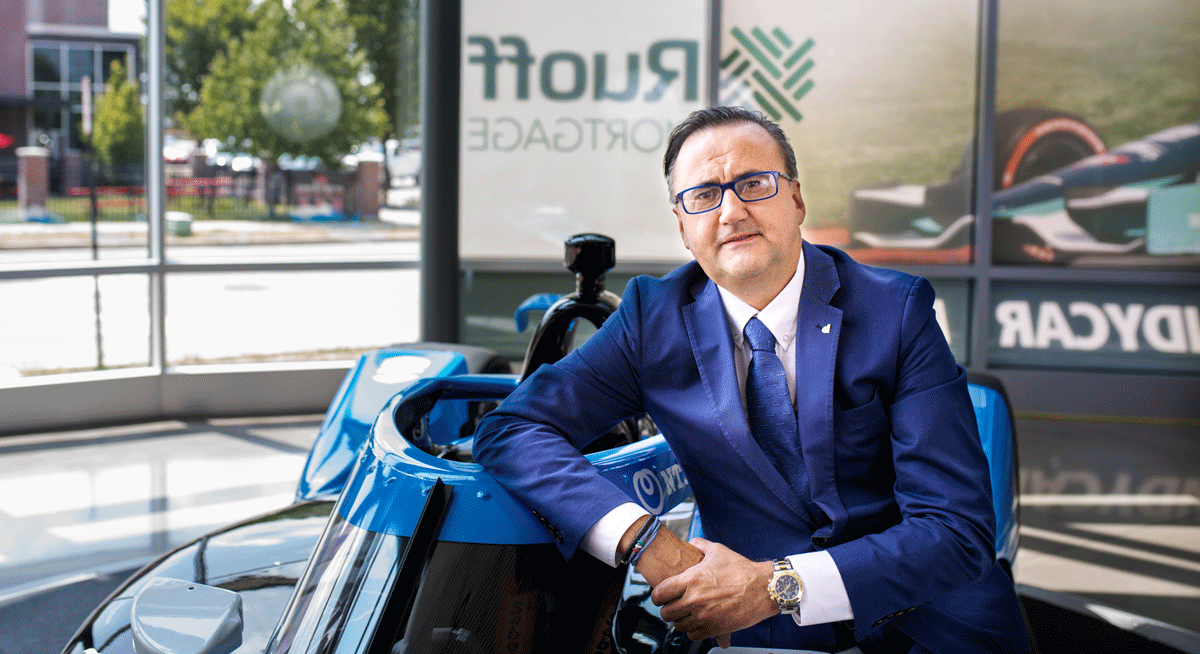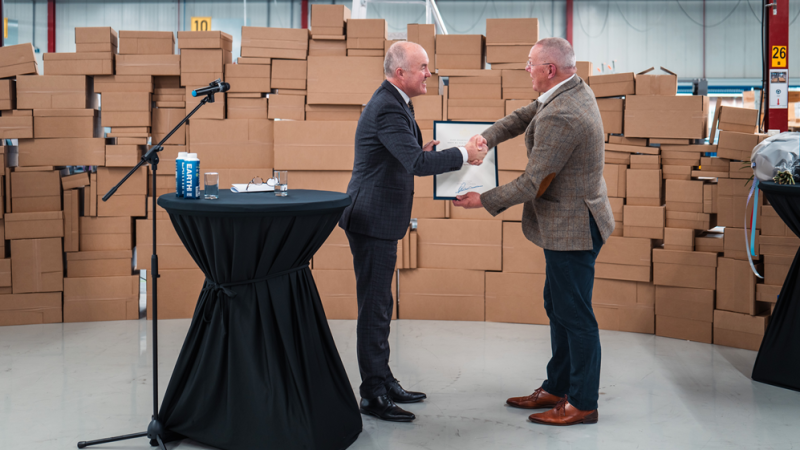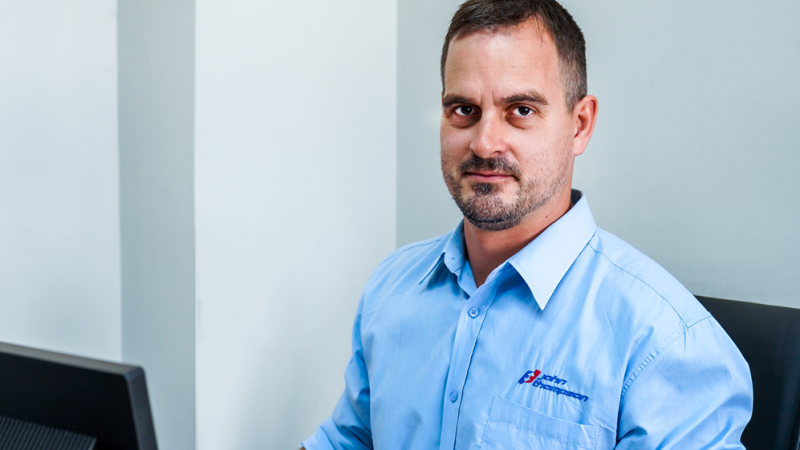Dallara is a company whose story is tied to racing history. The company’s founder, Giampaolo Dallara, had a CV that included names like Ferrari, Maserati, Lamborghini, and De Tomaso before he started his own engineering firm in 1972.
“He was an aeronautical engineer fascinated by racing and competition, and after a brilliant career in several industries, and becoming technical director of the Lamborghini Miura, he decided he wanted to compete himself,” recounts Stefano dePonti, CEO of Dallara USA. “He wanted to design and build and manufacture and eventually race his own cars.”
Giampaolo Dallara’s company went on to become a worldwide leader, supplying race cars across every Formula from F1 onwards, all over the world. It is a sector that requires the highest quality of design and engineering expertise, operating at peak performance under the most extreme pressures, and so it is no surprise that Dallara’s skillset has been sought after in other industries.
“Because we have this shared set of competencies, we have created two additional business units, to our racing business, one in automotive and the other in aerospace and defence,” dePonti says. “Our design expertise in composite fibre, simulations, and manufacturing can be applied across these sectors.”
DePonti has overseen Dallara’s move into the United States market since 2010, where the company supplied chassis and vehicles to the NTT INDYCAR SERIES in 2012, has become the sole chassis supplier for the Indy NXT Series, and has designed and manufactured the LMP2 car which became the Cadillac DPi that raced in the IMSA Series.
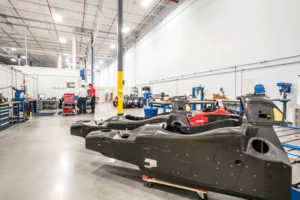 “We now cover INDYCAR, INDY NXT, NASCAR Cup Series and autonomous vehicles” dePonti reports.
“We now cover INDYCAR, INDY NXT, NASCAR Cup Series and autonomous vehicles” dePonti reports.
Dallara is able to compete across these different fields because it works to stay on top of the latest technology and innovations not only in racing but throughout the fields of safety, driveability, sustainability and even styling.
“Not only do we stay at the cutting edge of these fields, but we create it ourselves through our research centre,” says dePonti. “Our business plan is to deliver the best and most cost-effective product in our field.”
Cycles of Investment
To stay on that leading edge, Dallara has always had to invest heavily, putting profits back into the business for research and development.
“The competition is not just at the racetrack but in the products, we produce and sell to customers,” dePonti says. “It is in trying to be the best company in our field, and that means bringing in the best people and looking after them. That means training, motivation, and leadership. Personnel is the best asset a company can have.”
To ensure Dallara has access to the best talent, the company invests heavily in education, establishing close links with local universities and even helping to create a master’s degree for future recruits. It is a model the company has exported to their USA division.
“Racing is a very attractive sector for the younger generation that wants to become the next engineers to serve the industry,” dePonti points out. “Racing has great appeal for these students, and we try to match that expectation while showing them how to do it right. We take them step by step through the skills they need, investing in education and showing them the tools, the company has available.”
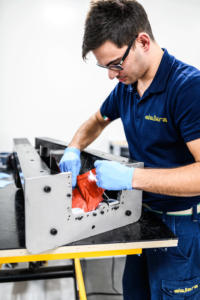 Racing Ahead
Racing Ahead
Dallara USA has found a system that works, and while the company is constantly working to refine and improve, dePonti knows better than to mess with a winning formula.
“Generally speaking, we just need to stay where we’re at, improving and learning,” he tells us. “If you are an engineering company you learn every day, by trial and sometimes error. Mr Dallara himself said from the beginning, ‘Learn from your mistakes.’ So, we are staying on top of what we have been doing. We are innovative, keeping an eye on new technologies and adapting to the market’s requirements whether in racing, automotive or defence and aerospace.”
Dallara USA seeks to do all this while connecting its contributions to educational and academic work to everyday engineering applications. It is also seeking out new markets, and competition, even venturing into the final frontier.
“Is outer space the future?” dePonti asks. “Maybe. We are seeing the creation of business models for a space economy and space tourism. There will be activity outside of planet Earth and we intend to be ready with the technologies, expectations, motivation, and vision to be active in that sector with our people.”
This is not just idle speculation on dePonti’s part. While he is unable to name names just yet, he can confide that Dallara is already active in this sector. Which is perfect for Dallara, as in the racing space the company has possibly already achieved all the growth that it can.
“In the US a company like ours already dominates all the racing markets we could possibly have,” dePonti says. “Our engineering services and our design, manufacturing and distribution are present in all the major racing environments. There is no more room in these sectors to improve or grow because we have already got them all.”
But as any racer knows, it is not enough to get ahead, you have to maintain your lead.
“We need to be good at maintaining what we’ve got,” dePonti tells us. “Whenever it is time to renew a contract, we want the clients to keep coming back to us. They stay with Dallara because we do a good job backed by excellent customer service. That is very important in this business. But to grow we need to get out there and find other opportunities.”
Whatever sectors Dallara moves into next, it will take with it the attitudes and know-how that have allowed it to dominate the motor racing sector.
“We say, ‘Ready or not, the race starts’,” dePonti says. “We apply that motto wherever we go, so companies know they can always trust us to deliver on time.”
Dallara USA have highlighted Belotti as a key supplier chain partner.
